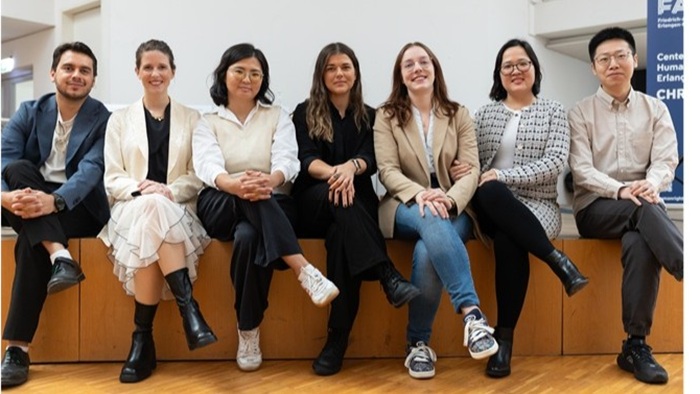Interdisciplinary Exchange and Dialogue
The conference was fully designed and organized by the doctoral researchers of the International Doctorate Program “Business and Human Rights” themselves. Across two days of panels, workshops, and interactive formats, participants examined the evolving roles of business in addressing business and human rights challenges through four thematic clusters:
- Conflicting Environments – focusing on human rights due diligence in (1) authoritarian, (2) conflict and (3) politically-complex environments.
- Transforming Norms – exploring the adaptation and diffusion of human rights norms.
- Emerging Technologies – discussing business and human rights in the digital age.
- Climate Crisis – addressing climate litigation and justice, particularly in the Global South.
What stood out most during the conference was the striking need to foster understanding between the Global North and the Global South. The diverse composition of participants sparked vivid and, at times, heated discussions that led to insightful and thought-provoking questions. This exchange was repeatedly highlighted in participant feedback as one of the most valuable aspects of the event—particularly the opportunity to hear and challenge perspectives from different global and disciplinary contexts.
The conference also revealed how vital continuous dialogue across disciplines is for advancing the field of business and human rights. While tensions occasionally surfaced, these moments created a productive space for open exchange, learning, and mutual reflection. Participants engaged deeply with core issues rather than avoiding uncomfortable topics, leading to a more candid and authentic exploration of ideas. Both passion and tension coexisted constructively, ultimately reflecting the intellectual curiosity and interdisciplinary engagement that defined the conference.
Panel speakers included scholars and practitioners from around the world—among them, there were professors, post-docs and PhDs in the fields of law, business and economics, and political science. Representatives from the Nubian Rights Forum (Kenya), OHCHR B-Tech Project (France), and Germanwatch (Germany), as well as active attorneys (India), lawyers (Brazil), and human rights activists (India) were engaged in lively discussions. The event also featured paper sessions on conflicting environments, workshops on climate justice, and World Cafés on AI ethics and conflicting environments, creating an open dialogue to further foster collaborations across disciplines and sectors.
In addition to scholarly panels, participants engaged in storytelling, traditional Indonesian dance, and capoeira performances reflecting the power of culture and arts in expressing human rights.
Feedback from participants at the end of the conference has summarised it well: "You really put together a fantastic event. I meant it sincerely that you are one of the true hotspots for Business and Human Rights in Europe." Another participant remarked, "This was one of the most impressive and beautiful conferences I've been to in a long time."
The dedicated team responsible for the conference's success comprised Milena Störmer, Stephanie Regalia, Thi Minh Chau Bui, Otgontuya Davaanyam, Eva Gengler, Xu Kang, Nelson Otieno and Eklavya Vasudev, who are all part of the International Doctorate Programme “Business and Human Rights”, as well as Anastasia Friedel, who provided support as a student assistant at the Chair of Public Law, International Law and Human Rights at FAU.
Text: The conference committee team, International Doctorate Program “Business and Human Rights”



